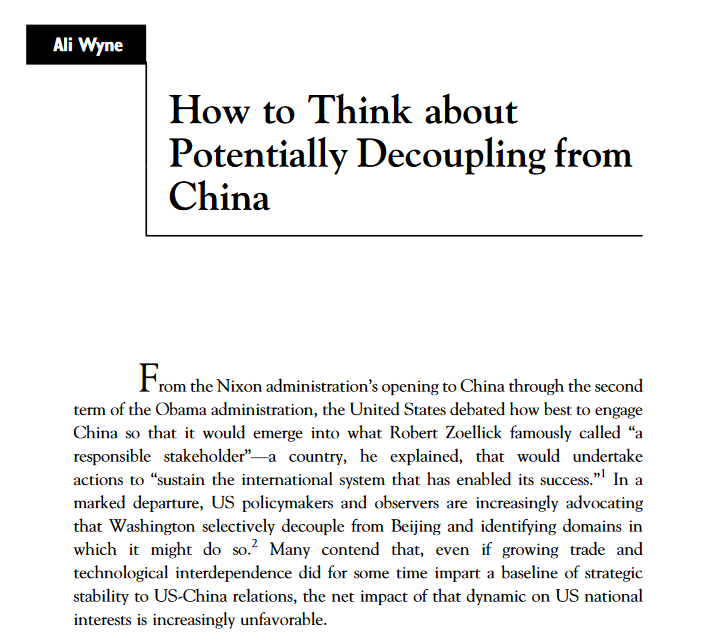
THREAD: Per an earlier tweet, I wanted to share some questions about great-power competition (GPC) that were inspired by this rich set of responses.
foreignaffairs.com/ask-the-expert…
[1/21]
Cc: @LKnightPolity
foreignaffairs.com/ask-the-expert…
[1/21]
Cc: @LKnightPolity
What makes a power "great"?
[2/21]
[2/21]
Is GPC a condition of geopolitics, a principle to orient U.S. foreign policy, a means of achieving vital U.S. national interests, or a strategy for advancing those interests? Some combination thereof?
[3/21]
[3/21]
Can, does, and should U.S. foreign policy have an organizing principle?
[4/21]
[4/21]
To what extent does the United States require an external competitor or set of external competitors to discipline its foreign policy and imbue it with purpose?
[5/21]
[5/21]
Accepting a GPC-centric framework, over what and for what is the United States competing? In what functional domains is competition most acute? In which geographic regions?
[6/21]
[6/21]
How unique is the contemporary phase of GPC? In competing with China, what lessons should the United States take from the run-up to World War I, the interwar period, and the Cold War? What lessons should it not take? Ditto for Russia.
[7/21]
[7/21]
To what extent does GPC effectively denote systemic competition with China? How should the United States think about Russia within a GPC-centric framework?
[8/21]
[8/21]
What are China's long-run strategic objectives? What material capabilities can it bring to bear in the service of those objectives? What are its principal competitive assets and liabilities? Ditto for Russia.
[9/21]
[9/21]
How should observers assess whether a given great power is rising, declining, or plateauing relative to others?
[10/21]
[10/21]
How are the sources of state power and influence evolving?
[11/21]
[11/21]
How does the shift of power from state to nonstate actors figure in a GPC-centric framework?
[12/21]
[12/21]
When and where should the United States compete with China? When and where should it not? How should it decide whether to respond to a given action on China's party? Ditto for Russia.
[13/21]
[13/21]
In competing with China, on what issues, and to what extent, will the United States be able to make common cause with allies and partners? How does the answer vary by issue? Ditto for Russia.
[14/21]
[14/21]
How will the actions of middle powers affect the course of GPC?
[15/21]
[15/21]
What policies should the United States adopt to manage a deepening Sino-Russian rapprochement?
[16/21]
[16/21]
What would a U.S. victory in GPC look like? A defeat? If that binary does not obtain, and competition is instead permanent, what are some plausible-cum-sustainable steady states?
[17/21]
[17/21]
What are the strategic requirements for competitive cohabitation with China? Ditto for Russia.
[18/21]
[18/21]
What cooperative spaces remain between the United States and China? Which ones might reemerge? Ditto for Russia.
[19/21]
[19/21]
How should the management of GPC and the management of transnational challenges relate to one another in the formulation of U.S. foreign policy?
[20/21]
[20/21]
How will America's domestic challenges affect the capacity of U.S. policymakers and the willingness of the U.S. public to engage in GPC?
[21/21]
[21/21]
• • •
Missing some Tweet in this thread? You can try to
force a refresh



